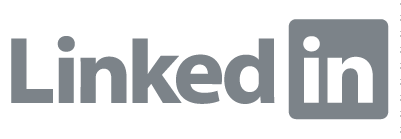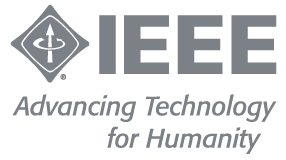While COVID-19 is spreading globally we collected advices from Silicon Valley investors and entrepreneurs. A list of first actions entrepreneurs should consider.

The spread of coronavirus to the whole world, raised a lot of concerns on personal, professional and global level. Many people started wondering how the stressors of this outbreak might affect business and larger economy.
We do not know how long this outbreak will take and we all really do hope that it will start declining as summer is approaching. But one thing is sure. It will take long for global economy to recover its footing. Even though governments in all countries are already taking some precautionary measures and central banks are already thinking on cutting interest rates, most of the sectors will be hit on the middle to high level.
Entrepreneurs should act now in order to prevent a total collapse, as this crisis might last longer than anyone is expecting, as now, we are fighting against an invisible enemy that is crushing medical systems in most of the countries. Many economists are comparing it with world economic crisis in 2008. This time it might be event worst as crisis is not starting in the US but every country has it own challenge. As in 2008, policy makers had already started with cash injections, however, what happened back than (housing led recession, over leveraged financials, falling asset prices, frozen credit markets, weak household balance sheet) affected banking system and household owners, but this pandemic brought markets and economies to their knees. What Sequoia suggested companies to do back than is the following: perform situation analysis, adapt quickly, use a zero-base budgeting approach, make cuts, review salaries, employ a heavily commissioned sales structure, bolster balance sheets, become cash flow positive as soon as possible, and spend every dollar as if it were your last.
The greatest entrepreneurial ecosystem, Silicon Valley, is also fighting the negative economic impact of COVID-19. Some of the largest companies, such as Google and Facebook have already given donations and contributions through their systems. What attorneys of Silicon Valley are mostly focused on are residents (especially those at highest risk of displacement due to illness, caregiving, loss of income, loss of work hours), small business (facing closure due to the health and safety restrictions) and community based organizations (cultural and non profit organizations).
In order to reduce potential loss of revenues, entrepreneurs should start thinking now:
Several countries are under the emergency states, that includes closure of all service and trading businesses, apart from pharmacies, groceries, and stores selling products for hygiene. There is almost no intercity traffic, events and type of gathering, access to fitness centers, shopping malls, and limited presences at the street.
These measures are preventing virus from spreading, but as a consequence, a lot of business are facing challenges including:
The other side of a problem is an opportunity. In fact, companies that are born and that are growing around innovative solutions for unsolved problems, should employ their creativity and focus on analysis of potential usage of the current situation. The current COVID-19 could create opportunities for entrepreneurs and companies able to provide new ways to do things better, faster, and cheaper in some of the industries above. Also eventually creating new business models or completely new markets. Aaron Levie, CEO of the Box, advised startups to firmly focus on their mission - “It’s about extreme focus right now. It’s about extreme discipline. It’s about making sure that you’re maintaining your culture during this time.”
Large companies are mostly well developed and organized systems, prepared to face the economic crisis. However, COVID-19 is affecting economy on a different level, as it affects the healthy state of the employees in the first place. Precautionary measures are including social distance and many productions are forced to reduce capacities. Costumers are changing habits, and companies need to adjust. In comparison with startups and small businesses, large companies are handling large numbers of employees, operating processes, departments, and they need more time to adapt. On the other hand, startups are operating in an uncertain environment that is forcing them to a fast moving and changing policies. Current situation is demanding companies to adapt quickly to change and redesign their products or services or even create new ones to respond to the demands of millions of people self-isolating around the world. This is where startups are having advantage. Maybe they have less capital, but they are pretty flexible and fast in adopting new technologies and adjusting their products/services upon the consumers needs. The virus will pass, but the consequences will remain for a longer period of time. Self-isolation and all precautionary measures will affect the “normal” way of consumers living, and companies need to be prepared that they will have to employ their resources in analyzing these changes in order to meet the consumers need. Time is the crucial, so start with market analysis now.
Darwin surmised, those who survive “are not the strongest or the most intelligent, but the most adaptable to change.”
Tijana Kovijanic

The spread of coronavirus to the whole world, raised a lot of concerns on personal, professional and global level. Many people started wondering how the stressors of this outbreak might affect business and larger economy.
We do not know how long this outbreak will take and we all really do hope that it will start declining as summer is approaching. But one thing is sure. It will take long for global economy to recover its footing. Even though governments in all countries are already taking some precautionary measures and central banks are already thinking on cutting interest rates, most of the sectors will be hit on the middle to high level.
Entrepreneurs should act now in order to prevent a total collapse, as this crisis might last longer than anyone is expecting, as now, we are fighting against an invisible enemy that is crushing medical systems in most of the countries. Many economists are comparing it with world economic crisis in 2008. This time it might be event worst as crisis is not starting in the US but every country has it own challenge. As in 2008, policy makers had already started with cash injections, however, what happened back than (housing led recession, over leveraged financials, falling asset prices, frozen credit markets, weak household balance sheet) affected banking system and household owners, but this pandemic brought markets and economies to their knees. What Sequoia suggested companies to do back than is the following: perform situation analysis, adapt quickly, use a zero-base budgeting approach, make cuts, review salaries, employ a heavily commissioned sales structure, bolster balance sheets, become cash flow positive as soon as possible, and spend every dollar as if it were your last.
The greatest entrepreneurial ecosystem, Silicon Valley, is also fighting the negative economic impact of COVID-19. Some of the largest companies, such as Google and Facebook have already given donations and contributions through their systems. What attorneys of Silicon Valley are mostly focused on are residents (especially those at highest risk of displacement due to illness, caregiving, loss of income, loss of work hours), small business (facing closure due to the health and safety restrictions) and community based organizations (cultural and non profit organizations).
In order to reduce potential loss of revenues, entrepreneurs should start thinking now:
- Are you running out of cash? Start thinking how to cut expenses without fundamentally hurting the business and make a plan to withstand a few poor quarters.
- Start thinking on fundraising opportunities, once the crisis stops. Private financings could soften significantly, as happened in 2001 and 2009. Start thinking how to make your business attractive.
- Forecast your sales by anticipating that your customers may revise their spending habits.
- Think about marketing by focusing on your customers. This outbreak will have a great impact on the customers lifestyles. They will need a motivation to recover and return to their normal lives.
- Revise your capital spending, as these plans aere sensible in a more uncertain environment
- Your employees are in critical situation as they are wondering how you wiil react on COVID-19 situation and what impact it will have to them. Demonstrate the leadership your team needs during this stressful time.
Several countries are under the emergency states, that includes closure of all service and trading businesses, apart from pharmacies, groceries, and stores selling products for hygiene. There is almost no intercity traffic, events and type of gathering, access to fitness centers, shopping malls, and limited presences at the street.
These measures are preventing virus from spreading, but as a consequence, a lot of business are facing challenges including:
- Drop in business activity – many companies had to lock down their business and move to the online sales (if possible)
- Supply chain disruptions – trading is spread in the whole world, and this is the time when everyone realize how the whole world is interconnected through the global supply chain
- Curtailment of travel and canceled meeting – many services and businesses are dependent on in-person meetings in order to conduct sales, business development, or partnership discussions
The other side of a problem is an opportunity. In fact, companies that are born and that are growing around innovative solutions for unsolved problems, should employ their creativity and focus on analysis of potential usage of the current situation. The current COVID-19 could create opportunities for entrepreneurs and companies able to provide new ways to do things better, faster, and cheaper in some of the industries above. Also eventually creating new business models or completely new markets. Aaron Levie, CEO of the Box, advised startups to firmly focus on their mission - “It’s about extreme focus right now. It’s about extreme discipline. It’s about making sure that you’re maintaining your culture during this time.”
Large companies are mostly well developed and organized systems, prepared to face the economic crisis. However, COVID-19 is affecting economy on a different level, as it affects the healthy state of the employees in the first place. Precautionary measures are including social distance and many productions are forced to reduce capacities. Costumers are changing habits, and companies need to adjust. In comparison with startups and small businesses, large companies are handling large numbers of employees, operating processes, departments, and they need more time to adapt. On the other hand, startups are operating in an uncertain environment that is forcing them to a fast moving and changing policies. Current situation is demanding companies to adapt quickly to change and redesign their products or services or even create new ones to respond to the demands of millions of people self-isolating around the world. This is where startups are having advantage. Maybe they have less capital, but they are pretty flexible and fast in adopting new technologies and adjusting their products/services upon the consumers needs. The virus will pass, but the consequences will remain for a longer period of time. Self-isolation and all precautionary measures will affect the “normal” way of consumers living, and companies need to be prepared that they will have to employ their resources in analyzing these changes in order to meet the consumers need. Time is the crucial, so start with market analysis now.
Darwin surmised, those who survive “are not the strongest or the most intelligent, but the most adaptable to change.”
Tijana Kovijanic


















